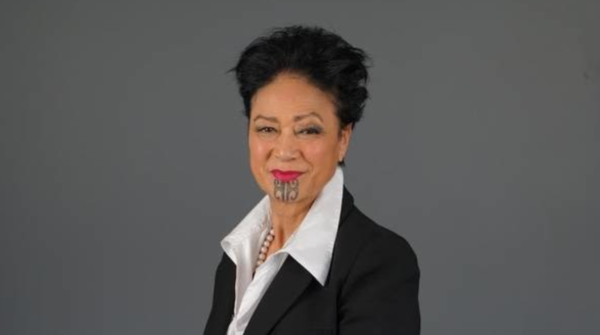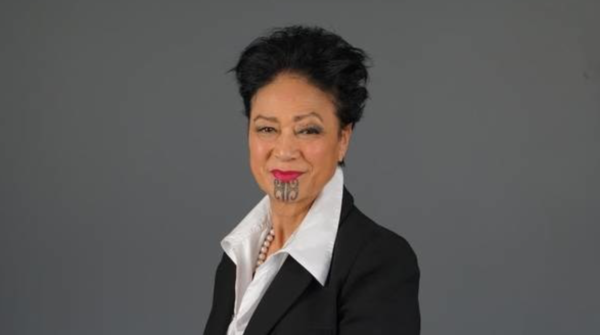
Have been asked a lot lately about how this Office was set up. So have written background piece –
This Office was set up as a result of the experiences of Tā Mark Solomon and Dame Tariana with climate change on their iwi.
Māori are already being hit first and hit hardest by climate change. 80% of our marae are where kaimoana are – on the coast or alongside rivers. – prone to flooding, rising seas and degraded sewage systems that give way under heavy rains.
In spite of this Māori voices are not being heard. 23 submissions from Māori/iwi, out of a total of 15,009 were received on the Zero Carbon proposals. Submissions on the ETS setting will follow that pattern. Within MfE and MPI, the serious lack of capacity to connect with Māori communities and to process that input were it to be made ensures that Māori are even more vulnerable to poorly informed policy making. I have spent the past few months connecting up Māori in environmental activities and have made those channels available to officials.
Emitters are everywhere. The Australia and New Zealand Climate Change Conference (platinum funder MfE) was dominated by emitters. The few Māori there clung together as you do when blinded by the sheer whiteness in the room. Same with the Zero Carbon and ETS consultations.
A quick look at Minister Shaw’s diary June – Aug shows that of the numerous appointments held in his office, not one handful were Māori. The majority were greenhouse gas emitters. The emitters who deserve the greatest support are Māori farmers who have faced the greatest barriers to development but who, if tradition is followed, will be forced to bear a greater burden than others. They were not among those lobbying.
My role is to ensure Maori voices on mitigation and adaptation are included in legislation and policy settings, that the Maori world view leads mitigation efforts and that we support indigenous people worldwide. Those who have done the least to cause global warming, are the most harmed by it.
Noam Chomsky is right when he says that indigenous people can save humanity from global warming. We are still at one with our universe. Not disconnected. Not in control of. But in awe of. In respect for. That is the beauty of whakapapa which more than anything demonstrates the genius of Māori ancestors. Who else thought of connecting every living thing through geneology and then committing it to memory. And of having the responsibility of all your ancestors in the past and your descendants in the future. Amazing. Astounding. And yes. The answer to being driven by the next quarters profit sheet.
The sheer number of committed, capable, inventive and connected Māori I have had the joy of meeting over the past few months has convinced me that they and we will have to step up, speak up and work with our politicians and officials to help them make better choices for all our descendants.
Donna Awatere Huata
Māori Climate Commissioner






Most indigenous people – and some human species living in native and rural environments for a longer time – have been able to maintain and further evolve senses, sensors, feelers and antenna for natural and spiritual elements in their surrounding. They did this much better than the part of humanity that developed through pathways of urbanization and industrialization.
• That should not really come as a surprise.
Maori, Pacific Islanders and migrants from some South East Asian islands hold knowledge and experience that is often untenable by Joe or Josy Pakeha-Smith.
• Knowledge and experience most relevant for climate resilience.
Green Party representatives may learn as much from these as they do from business round-tables with the main emission culprits.
• Or even more.
References:
1. Indigenous peoples and climate change. From victims to change agents through decent work.
https://www.ilo.org/wcmsp5/groups/public/—dgreports/—gender/documents/publication/wcms_551189.pdf
2. Greetings from across the ocean
https://www.youtube.com/watch?v=21ixwIaN7qw
3. Setting an example for Aotearoa / the South Pacific ?
https://www.indigenousclimateaction.com/
Most indigenous people – and some human species living in native and rural environments for a longer time – have been able to maintain and further evolve senses, sensors, feelers and antenna for natural and spiritual elements in their surrounding. They did this much better than the part of humanity that developed through pathways of urbanization and industrialization.
• That should not really come as a surprise.
Maori, Pacific Islanders and migrants from some South East Asian islands hold knowledge and experience that is often untenable by Joe or Josy Pakeha-Smith.
• Knowledge and experience most relevant for climate resilience.
Green Party representatives may learn as much from these as they do from business round-tables with the main emission culprits.
• Or even more.
References:
1. Indigenous peoples and climate change. From victims to change agents through decent work.
https://www.ilo.org/wcmsp5/groups/public/—dgreports/—gender/documents/publication/wcms_551189.pdf
2. Greetings from across the ocean
https://www.youtube.com/watch?v=21ixwIaN7qw
3. Setting an example for Aotearoa / the South Pacific ?
https://www.indigenousclimateaction.com/
In my experience most climate change deniers tend to be unemployed, low wage workers or rich manipulative wankers.
Comments are closed.